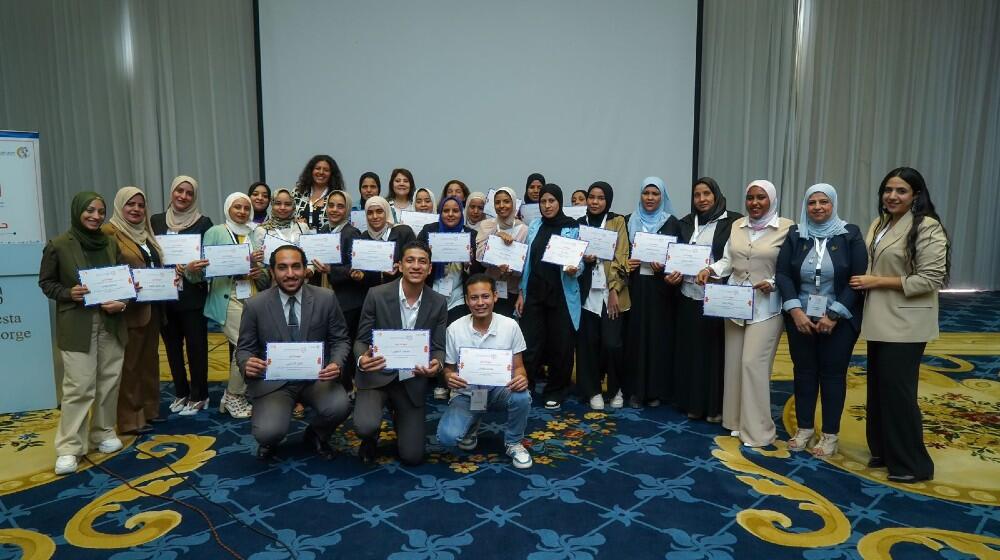When a call for social entrepreneurs opened in Upper Egypt under the Social Innovation Incubator, Riham Zakareya did not hesitate to apply.
Her project, she says, will help raise awareness on the harms of Female Genital Mutilation (FGM) in Upper Egypt, while also providing it provides psychological support for women who had been subjected to the harmful practice.
Through her platform, Sycotiva, the first platform of its kind in Upper Egypt, Riham aims to offer psychological support through individual and group sessions, upload content to raise awareness and in the future she plans to take her efforts offline, and hold regular storytelling sessions, offering a platform for women to share their stories.
Riham is one of 20 social entrepreneurs enrolled in the second cycle of the Social Innovation Incubator, launched by UNFPA Egypt under the name “Saeed-Hub,” aimed at empowering social entrepreneurs to design sustainable solutions that are both profitable and have a social impact for the elimination of FGM in their communities, in cooperation with the National Council for Women and Outreach, with the support of the Royal Norwegian Embassy.
This phase of the incubator targeted Luxor and its neighboring governorates in Upper Egypt, and provided technical and financial support to develop innovative solutions that take into account the societal context and provide opportunities for them to design and implement community-led creative solutions to development challenges related to the mandate of UNFPA.
On June 30, UNFPA, the National Council for Women and Outreach organized a graduation ceremony for the 20 selected candidates in Luxor. The top 5 candidates presented their ideas and the top 20 winners were awarded seed funding to kickstart their projects. UNFPA will continue the post-incubation phase where the social entrepreneurs will be provided with technical and financial support and opportunities for upscaling through partnerships on the local and national level.
The first cycle focused specifically on FGM in Upper Egypt with the “Dafayer” initiative, and empowered young people to design sustainable solutions that are both profitable and have a social impact for the elimination of FGM in their communities.


